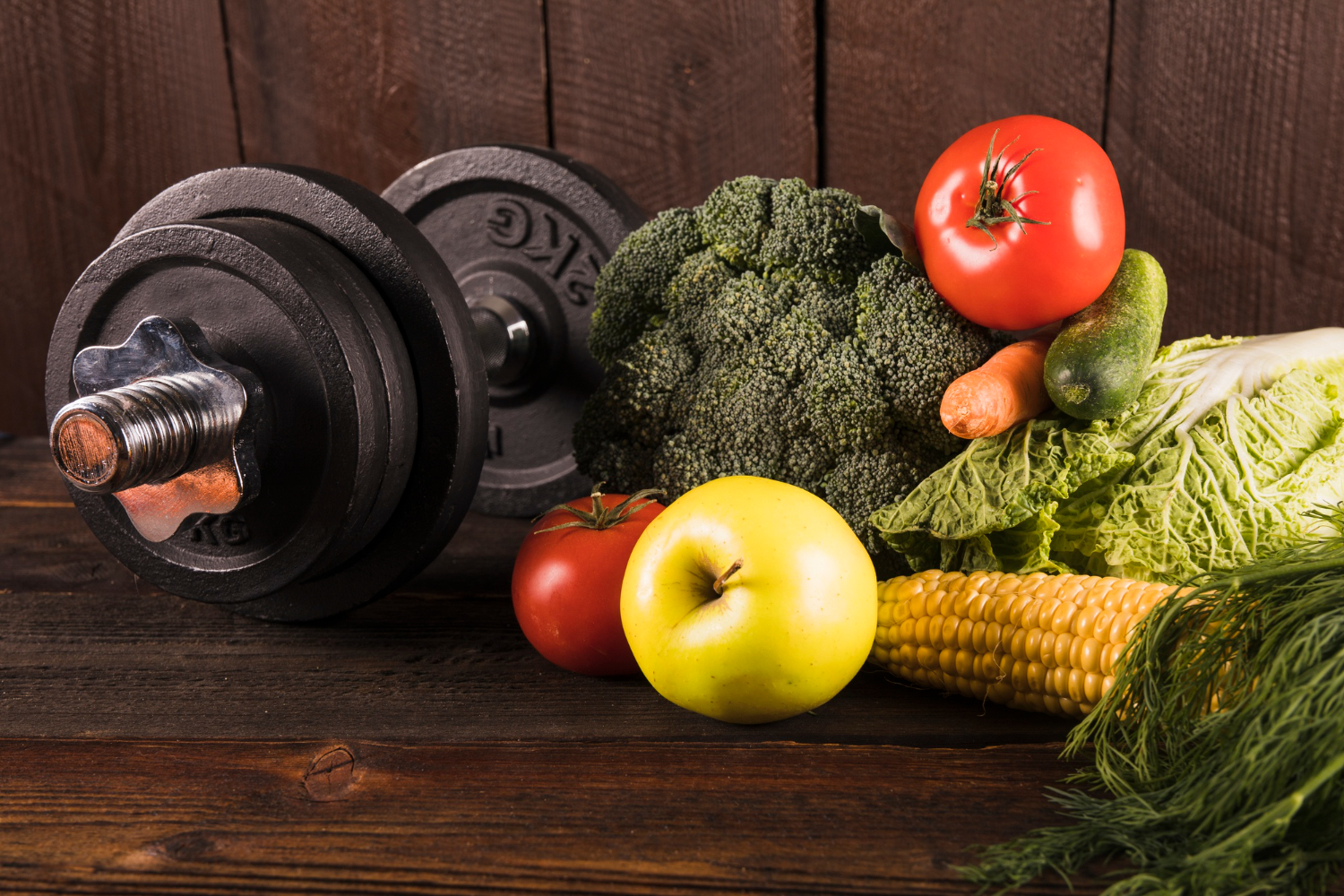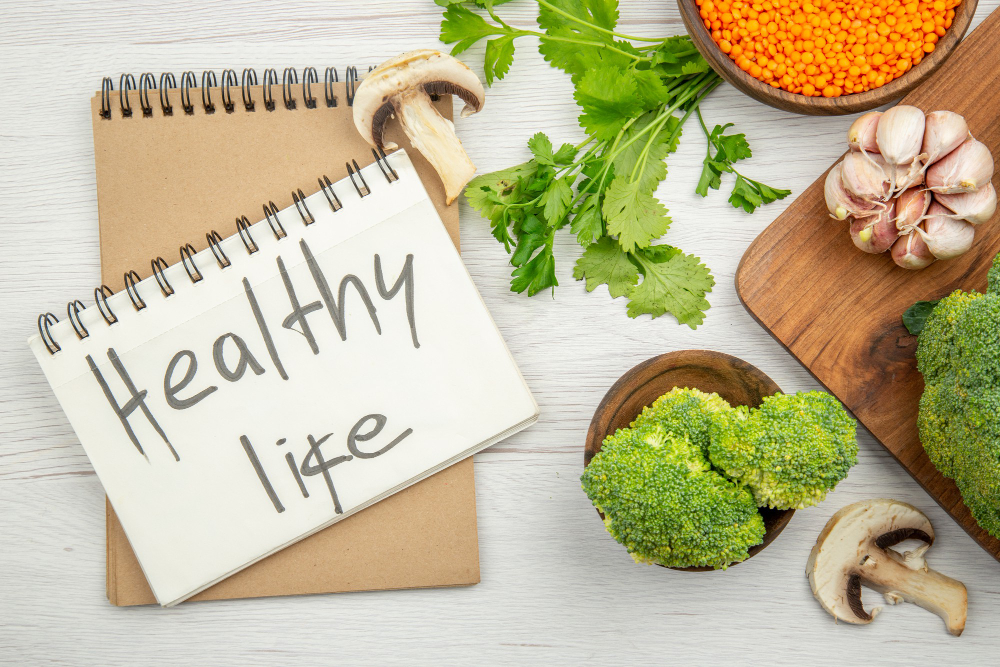Introduction to Plant-Based Fitness
Understanding Plant-Based Fitness
Plant-based fitness involves incorporating a diet rich in vegetables, fruits, legumes, grains, nuts, and seeds to fuel athletic performance and fitness goals. Athletes and fitness enthusiasts on a plant-based diet can achieve optimal health, improve performance, and maintain muscle mass with the right nutritional strategies.
Benefits of Plant-Based Fitness
Switching to a plant-based diet offers numerous benefits for athletes, including enhanced recovery, reduced inflammation, and a lower risk of chronic diseases. This diet provides essential nutrients, antioxidants, and fiber, promoting overall well-being and improved athletic performance.
Plant-Based Protein Sources
Legumes and Pulses
Legumes and pulses, such as lentils, chickpeas, black beans, and peas, are excellent sources of plant-based protein. These foods are also rich in fiber, iron, and B vitamins, essential for energy production and muscle recovery.
Nuts and Seeds
Nuts and seeds, including almonds, chia seeds, flaxseeds, and hemp seeds, provide a high-quality protein boost. They are also packed with healthy fats, vitamins, and minerals that support overall health and athletic performance.
Optimizing Protein Intake
Protein Requirements for Athletes
Athletes on a plant-based diet need to ensure they consume enough protein to support muscle repair and growth. The recommended protein intake varies, but generally, athletes should aim for 1.2 to 2.0 grams of protein per kilogram of body weight.
Combining Protein Sources
To obtain a complete amino acid profile, athletes should combine different plant-based protein sources throughout the day. For example, pairing beans with rice or hummus with whole-grain bread can help meet protein needs and support muscle synthesis.
Essential Vitamins and Minerals
Iron and Vitamin B12
Iron is crucial for oxygen transport and energy production, while vitamin B12 supports nerve function and red blood cell formation. Plant-based athletes should include iron-rich foods like spinach, lentils, and fortified cereals, and consider B12 supplements or fortified foods.
Calcium and Vitamin D
Calcium is vital for bone health and muscle function, while vitamin D aids in calcium absorption and immune function. Plant-based sources of calcium include fortified plant milks, tofu, and leafy greens. Sun exposure and fortified foods or supplements can help maintain adequate vitamin D levels.
Carbohydrates for Energy
Complex Carbohydrates
Complex carbohydrates, found in whole grains, vegetables, and legumes, provide sustained energy for workouts and recovery. Foods like quinoa, brown rice, sweet potatoes, and oats are excellent sources of complex carbs.
Timing Carbohydrate Intake
Timing carbohydrate intake around workouts can enhance performance and recovery. Consuming carbs before exercise fuels muscles, while post-workout carbs replenish glycogen stores and aid in recovery.
Healthy Fats for Athletes
Omega-3 Fatty Acids
Omega-3 fatty acids, found in flaxseeds, chia seeds, walnuts, and algae-based supplements, reduce inflammation and support heart health. Including these sources in a plant-based diet is crucial for overall well-being and athletic performance.
Monounsaturated and Polyunsaturated Fats
Healthy fats from sources like avocados, nuts, seeds, and olive oil provide energy, support cell function, and aid in nutrient absorption. Balancing fat intake with protein and carbohydrates ensures a well-rounded diet.
Hydration and Electrolytes
Importance of Hydration
Proper hydration is essential for maintaining energy levels, preventing muscle cramps, and regulating body temperature. Athletes should drink water regularly throughout the day and increase intake during and after exercise.
Electrolyte Balance
Electrolytes, such as sodium, potassium, and magnesium, are crucial for muscle function and preventing dehydration. Plant-based sources of electrolytes include bananas, coconut water, leafy greens, and nuts.
Pre-Workout Nutrition
Fueling Up Before Exercise
Eating a balanced meal or snack before exercise ensures sustained energy and optimal performance. Aim for a combination of carbohydrates, protein, and healthy fats, such as a smoothie with spinach, banana, and almond butter.
Timing Pre-Workout Meals
Timing is key for pre-workout nutrition. Eating 1-3 hours before exercise allows the body to digest and absorb nutrients, providing energy without causing discomfort. Smaller snacks can be consumed closer to workout time.
Post-Workout Recovery
Protein and Carbohydrate Intake
Post-workout nutrition focuses on replenishing glycogen stores and repairing muscles. Consuming a meal or snack with protein and carbohydrates within 30-60 minutes after exercise is ideal. Examples include a protein smoothie or a quinoa and vegetable bowl.
Hydration After Exercise
Rehydrating after exercise is crucial for recovery. Drinking water or an electrolyte-rich beverage helps replace fluids lost through sweat and supports overall recovery.
Plant-Based Meal Planning
Balanced Meals
Creating balanced meals ensures athletes meet their nutritional needs. Each meal should include a source of protein, complex carbohydrates, healthy fats, and plenty of vegetables. For example, a tofu stir-fry with brown rice and mixed vegetables.
Meal Prepping
Meal prepping can save time and ensure athletes have nutritious meals readily available. Preparing large batches of grains, legumes, and roasted vegetables can make it easy to assemble balanced meals throughout the week.
Supplements for Plant-Based Athletes
Protein Powders
Plant-based protein powders, such as pea, hemp, or brown rice protein, can help athletes meet their protein needs. These powders can be added to smoothies, oatmeal, or baked goods for a convenient protein boost.
Multivitamins
A high-quality multivitamin can help fill any nutritional gaps in a plant-based diet. Look for a multivitamin that includes vitamin B12, iron, vitamin D, and other essential nutrients.
Plant-Based Snacks
Quick and Nutritious Options
Healthy snacks provide energy and nutrients between meals. Plant-based options include fruit with nut butter, hummus with vegetables, or a handful of nuts and seeds.
Homemade Snack Ideas
Making snacks at home ensures they are nutritious and free from additives. Try making energy balls with dates, nuts, and cocoa powder or baking chickpeas for a crunchy, protein-rich snack.
Managing Digestive Health
Fiber Intake
Plant-based diets are high in fiber, which supports digestive health. However, too much fiber can cause discomfort for some athletes. Gradually increasing fiber intake and drinking plenty of water can help manage this.
Probiotics and Fermented Foods
Probiotics and fermented foods, such as sauerkraut, kimchi, and yogurt, support gut health by promoting a healthy balance of bacteria. Including these foods in a plant-based diet can improve digestion and overall health.
Maintaining Muscle Mass
Strength Training
Strength training exercises, such as weightlifting and resistance band workouts, are crucial for building and maintaining muscle mass. Athletes should include strength training sessions in their workout routines several times a week.
Protein Timing
Consuming protein throughout the day, especially around workouts, supports muscle repair and growth. Aim for protein-rich meals and snacks every 3-4 hours.
Enhancing Endurance
Cardiovascular Training
Cardiovascular training, such as running, cycling, and swimming, improves endurance and cardiovascular health. Athletes should include a mix of steady-state and interval training in their routines.
Fueling Long Workouts
For longer workouts, consuming easily digestible carbs and electrolytes during exercise helps maintain energy levels. Options include energy gels, sports drinks, or homemade energy bars.
Recovery Strategies
Rest and Sleep
Adequate rest and sleep are crucial for recovery and performance. Athletes should aim for 7-9 hours of sleep per night and include rest days in their training schedules.
Active Recovery
Active recovery involves low-intensity activities, such as yoga, walking, or gentle stretching, to promote blood flow and muscle repair without adding stress to the body.
Mental Health and Plant-Based Fitness
Mindfulness and Meditation
Mindfulness and meditation practices can reduce stress, improve focus, and enhance overall well-being. Incorporating these practices into a fitness routine can support mental health and performance.
Support Systems
Having a support system, such as a workout buddy or a plant-based community, can provide motivation and encouragement. Connecting with others who share similar goals can make the plant-based fitness journey more enjoyable.
Common Challenges and Solutions
Addressing Nutritional Deficiencies
Nutritional deficiencies can occur on any diet, including plant-based. Regular blood tests and working with a healthcare professional can help identify and address any deficiencies.
Overcoming Cravings
Cravings for non-plant-based foods can be challenging, especially in the beginning. Finding plant-based alternatives, such as vegan cheese or meat substitutes, can help satisfy cravings while staying on track.
Sustainable Eating Habits
Reducing Food Waste
Reducing food waste is an important aspect of sustainable eating. Planning meals, storing food properly, and using leftovers creatively can help minimize waste.
Ethical Considerations
Many athletes choose a plant-based diet for ethical reasons, such as animal welfare and environmental sustainability. Being mindful of these considerations can reinforce commitment to a plant-based lifestyle.
Success Stories
Plant-Based Athletes
Many successful athletes thrive on a plant-based diet. Examples include tennis star Venus Williams, ultra-endurance athlete Rich Roll, and Olympic weightlifter Kendrick Farris. Their stories demonstrate the potential for high performance on a plant-based diet.
Fitness Enthusiasts
Fitness enthusiasts from all walks of life have experienced improved health, increased energy, and enhanced performance by switching to a plant-based diet. Sharing these stories can inspire others to make the transition.
Conclusion
Embracing Plant-Based Fitness
Plant-based fitness offers a holistic approach to health and performance. By prioritizing nutrient-dense foods, proper hydration, and balanced training, athletes can achieve their fitness goals while promoting overall well-being.
Your Plant-Based Journey
Embarking on a plant-based fitness journey is a rewarding experience that can transform your health and performance. With the right knowledge, preparation, and support, you can thrive on a plant-based diet and achieve your athletic aspirations.
FAQs
- Can you build muscle on a plant-based diet?
- Yes, with adequate protein intake and strength training, you can build and maintain muscle on a plant-based diet.
- What are the best plant-based protein sources for athletes?
- Legumes, nuts, seeds, tofu, tempeh, and protein powders are excellent sources of plant-based protein for athletes.
- How can plant-based athletes meet their iron needs?
- Consuming iron-rich foods like spinach, lentils, and fortified cereals, along with vitamin C-rich foods to enhance absorption, can help meet iron needs.
- Is a plant-based diet suitable for endurance athletes?
- Yes, a plant-based diet can provide the necessary carbohydrates, protein, and nutrients for endurance athletes to perform and recover effectively.
- Do plant-based athletes need supplements?
- Some athletes may benefit from supplements, such as vitamin B12, vitamin D, and omega-3s, to ensure they meet their nutritional needs.
- What should plant-based athletes eat before a workout?
- A balanced meal with carbohydrates, protein, and healthy fats, such as a smoothie with spinach, banana, and almond butter, can provide sustained energy.
- How can plant-based athletes improve recovery?
- Consuming protein and carbohydrates post-workout, staying hydrated, and getting adequate rest are key to improving recovery.
- Are there any famous plant-based athletes?
- Yes, athletes like Venus Williams, Rich Roll, and Kendrick Farris are thriving on plant-based diets and achieving high performance.
- What are some easy plant-based snacks for athletes?
- Fruit with nut butter, hummus with vegetables, and homemade energy balls are quick and nutritious plant-based snacks for athletes.
- How can plant-based athletes manage digestive health?
- Gradually increasing fiber intake, drinking plenty of water, and including probiotics and fermented foods can support digestive health.


